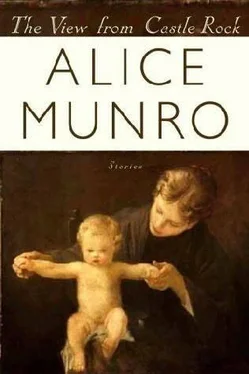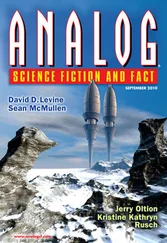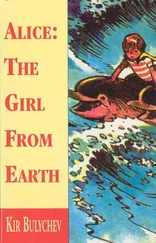My father had stopped for gas at a country store and he had bought me an ice-cream cone. It was an out-of-the-way place and the ice cream must have been sitting in its tub for a long time. It had probably been partly melted at one stage, then refrozen. It had splinters of ice in it, pure ice, and its flavor was dismally altered. Even the cone was soft and stale.
“But why would he go this way to Muskoka?” my husband said. “Wouldn’t he go along No. 9 and then go up on Highway 11?”
He was right. I wondered whether I could have been mistaken. It could have been another store at another crossroads where we bought the gas and the ice cream.
As we drove west, heading over the long hills for Bruce County and Highway 21, after sunset and before dark, I talked about what any long car trip-that is, any car trip over ten miles long-used to be like for our family, how arduous and uncertain. I described to my husband-whose family, more realistic than ours, considered themselves too poor to own a car-how the car’s noises and movements, the jolting and rattling, the straining of the engine and the groan of the gears, made the crowning of hills and the covering of miles an effort that everybody in the car seemed to share. Would a tire go flat, would the radiator boil over, would there be a breakdown? The use of that word- breakdown -made it sound as if the car was frail and skittish, with a mysterious, almost human vulnerability.
Of course it wouldn’t be like that if you had a newer car, or if you could afford to keep it in good repair, I said.
And it came to me why we would have been driving to Muskoka along back roads. I was not mistaken after all. My father must have been wary of taking the car through any sizable town or on a main highway. There were too many things wrong with it. It should not have been on the road at all. There were times when he could not afford to take it to the garage and this must have been one of them. He did what he could to fix it himself, to keep it running. Sometimes a neighbor helped him. I remember my father’s saying, “The man’s a mechanical genius,” which makes me suspect that he was no mechanical genius himself.
Now I knew why such a feeling of risk and trepidation was mixed up with my memory of the unpaved, sometimes ungravelled roads-some were ridged in such a way that my father called them washboard roads-and the one-lane plank bridges. As things came back to me I could recall my father’s telling me that he had only enough money to get to the hotel where my mother was, and that if she didn’t have any money he didn’t know what he was going to do. He didn’t tell me this at the time, of course. He bought me the ice-cream cone, he told me to push on the dashboard when we were going up the hills, and I did so, though it was a ritual now, a joke, my faith having long ago evaporated. He seemed to be enjoying himself.
He told me about the circumstances of the trip years later, after my mother was dead, when he was remembering some times that they had gone through together.
The furs that my mother was selling to American tourists (we always spoke of American tourists, as if acknowledging that they were the only kind who could be of any use to us) were not raw furs, but tanned and dressed. Some skins were cut and sewn together in strips, to make capes; others were left whole and were made into what were called scarves. A fox scarf was one whole skin, a mink scarf was two or three skins. The head of the animal was left on and was given bright golden-brown glass eyes, also an artificial jaw. Fasteners were sewn on the paws. I believe that in the case of the mink the pelts were attached tail to mouth. The fox scarf was fastened paw to paw, and the fox cape sometimes had the fox’s head sewn on out of place entirely, in the middle of the back, as a decoration.
Thirty years later these furs would have found their way into second-hand clothing stores and might be bought and worn as a joke. Of all the moldering and grotesque fashions of the past, this wearing of animal skins that were undisguised animal skins would seem the most amazing and barbaric.
My mother sold the fox scarves for twenty-five, thirty-five, forty, fifty dollars, depending on the number of white hairs, the “silver,” in the pelt. Capes cost fifty, seventy-five, maybe a hundred dollars. My father had started raising mink as well as foxes during the late nineteen-thirties, but she did not have many mink scarves for sale and I do not remember what she charged for them. Perhaps we had been able to dispose of them to the furriers in Montreal without taking a loss.
The colony of fox pens took up a good deal of the territory on our farm. It stretched from behind the barn to the high bank overlooking the river flats. The first pens my father had made had roofs and walls of fine wire on a framework of cedar poles. They had earth floors. The pens built later on had raised wire floors. All the pens were set side by side on intersecting “streets” so that they made a town, and around the town was a high guard fence. Inside each pen was a kennel-a large wooden box with ventilation holes and a sloping roof or lid that could be lifted up. And there was a wooden ramp along one side of the pen, for the foxes’ exercise. Because the building had been done at different times and not all planned out in the beginning, there were all the differences there are in a real town-there were wide streets and narrow streets, some spacious earth-floored old-fashioned pens and some smaller wire-floored modern pens that seemed less agreeably proportioned even if more sanitary. There were two long apartment buildings called the Sheds. The New Sheds had a covered walkway between two facing rows of pens with slanting wooden roofs and high wire floors. The Old Sheds was just a short row of attached pens rather primitively patched together. The New Sheds was a hellishly noisy place full of adolescents due to be pelted-most of them-before they were a year old. The Old Sheds was a slum and contained disappointing breeders who would not be kept another year, and the occasional cripple, and even, for a time, a red female fox who was well-disposed to humans and by way of being a pet. Either because of that, or her color, all the other foxes shunned her, and her name-for they all had names-was Old Maid. How she came to be there I don’t know. A sport in a litter? A wild fox who tunnelled the wrong way under the guard fence?
When the hay was cut in our field some of it was spread on top of the pens to give the foxes shelter from the sun and keep their fur from turning brown. They looked very scruffy anyway, in the summertime-old fur falling out and new fur just coming in. By November they were resplendent, the tips of their tails snowy and their back fur deep and black, with its silver overlay. They were ready to be killed-unless they were to carry on as breeders. Their skins would be stretched, cleaned, sent off to be tanned, and then to the auctions.
Up to this time everything was in my father’s control, barring some disease, or the chanciness of breeding. Everything was of his making-the pens, the kennels where the foxes could hide and have their young, the water dishes-made from tins-that tipped from the outside and were filled twice a day with fresh water, the tank that was trundled down the streets, carrying water from the pump, the feed trough in the barn where meal and water and ground horse meat were mixed, the killing box where the animal’s trapped head met the blast of chloroform. Then, once the pelts were dried and cleaned and peeled off the stretch boards, nothing was within his control anymore. The pelts were laid flat in shipping boxes and sent off to Montreal and there was nothing to do but wait and see how they were graded and sold at the fur auctions. The whole year’s income, the money to pay the feed bill, the money to pay the bank, the money he had to pay on the loan he had from his mother after she was widowed, had to come out of that. In some years the price of the furs was fairly good, in some years not too bad, in other years terrible. Though nobody could have seen it at the time, the truth was that he had got into the business just a little too late, and without enough capital to get going in a big way during the first years when the profits were high. Before he was fairly started the Depression arrived. The effect on his business was erratic, not steadily bad, as you might think. In some years he was slightly better off than he might have been on the farm, but there were more bad years than good. Things did not pick up much with the beginning of the war-in fact, the prices in 1940 were among the worst ever. During the Depression bad prices were not so hard to take-he could look around and see that nearly everybody was in the same boat-but now, with the war jobs opening up and the country getting prosperous again, it was very hard to have worked as he had and come up with next to nothing.
Читать дальше












